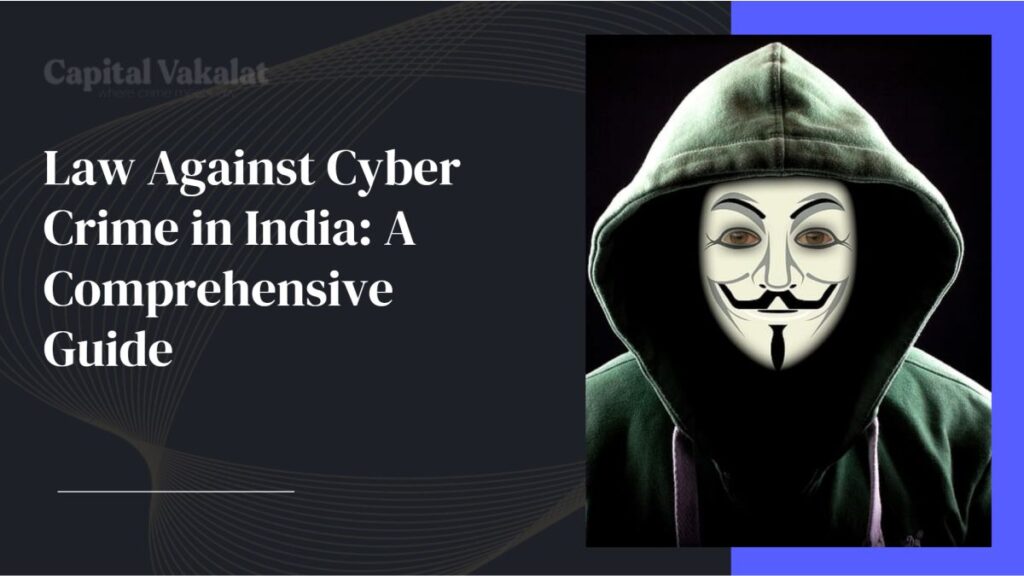With the rise of technology and the internet, the number of cyber crimes has been increasing in India. From identity theft to hacking, cybercrime has become a serious concern for individuals and businesses alike. In response to this growing threat, the government of India has established cyber crime cells in different states to investigate and prevent cybercrime. This article will explore the role of cyber crime cells in India, their responsibilities, and the measures they take to tackle cybercrime.

What is a Cyber Crime Cell?
A cyber crime cell is a specialized unit within the police department that is responsible for investigating cybercrime. These cells have a team of trained professionals who are knowledgeable in the latest technologies and techniques used in cybercrime. They are equipped with the latest tools and software to assist in their investigations.
Responsibilities of Cyber Crime Cells
The main responsibility of cyber crime cells is to investigate cybercrime cases and bring the perpetrators to justice. They work closely with other law enforcement agencies and government departments to ensure that cybercrime is prevented and punished. In addition, cyber crime cells also play an important role in educating the public about cybercrime and its consequences. They provide training and awareness programs to individuals and businesses to help them protect themselves from cybercrime.
Measures Taken by Cyber Crime Cells to Tackle Cybercrime
Cyber crime cells take various measures to tackle cybercrime in India. These measures include:
- Investigation: Cyber crime cells investigate cybercrime cases and gather evidence to bring the perpetrators to justice.
- Technical Support: Cyber crime cells provide technical support to other law enforcement agencies to help them investigate cybercrime cases.
- Awareness Programs: Cyber crime cells conduct awareness programs to educate the public about cybercrime and how to protect themselves from it.
- International Cooperation: Cyber crime cells work closely with international law enforcement agencies to tackle cybercrime on a global level.
Conclusion
In conclusion, the role of cyber crime cells in India is crucial in preventing and investigating cybercrime. With the increasing use of technology and the internet, the threat of cybercrime has become a serious concern, and the cyber crime cells play a vital role in tackling this threat. By investigating cybercrime cases, providing technical support, conducting awareness programs, and working with international law enforcement agencies, cyber crime cells are working tirelessly to make the internet a safer place for everyone.
FAQs
Who investigates cybercrime in India?
Cybercrime in India is investigated by the cyber crime cells within the police department.
What are the most common types of cybercrime in India?
The most common types of cybercrime in India include hacking, identity theft, phishing, and cyberstalking.
Can individuals report cybercrime in India?
Yes, individuals can report cybercrime in India by contacting their local cyber crime cell or the police department.
How can individuals protect themselves from cybercrime in India?
Individuals can protect themselves from cybercrime in India by keeping their software and systems updated, using strong passwords, and being cautious of suspicious emails or links.
What happens if someone is a victim of cybercrime in India?
If someone is a victim of cybercrime in India, they should report it to the police department or their local cyber crime cell. The cell will then investigate the case and take the necessary steps to bring the perpetrators to justice.
How does the government of India prevent cybercrime?
The government of India has established cyber crime cells in different states to investigate and prevent cybercrime. They also provide training and awareness programs to individuals and businesses to help them protect themselves from cybercrime.
What are the consequences of committing cybercrime in India?
The consequences of committing cybercrime in India include imprisonment, fines, and legal penalties.
How can businesses protect themselves from cybercrime in India?
Businesses can protect themselves from cybercrime in India by implementing strong security measures, regularly updating their software and systems, and providing training to their employees.
What is the role of international law enforcement agencies in tackling cybercrime in India?
International law enforcement agencies work closely with the cyber crime cells in India to tackle cybercrime on a global level. They provide technical support and share information to help prevent and investigate cybercrime.